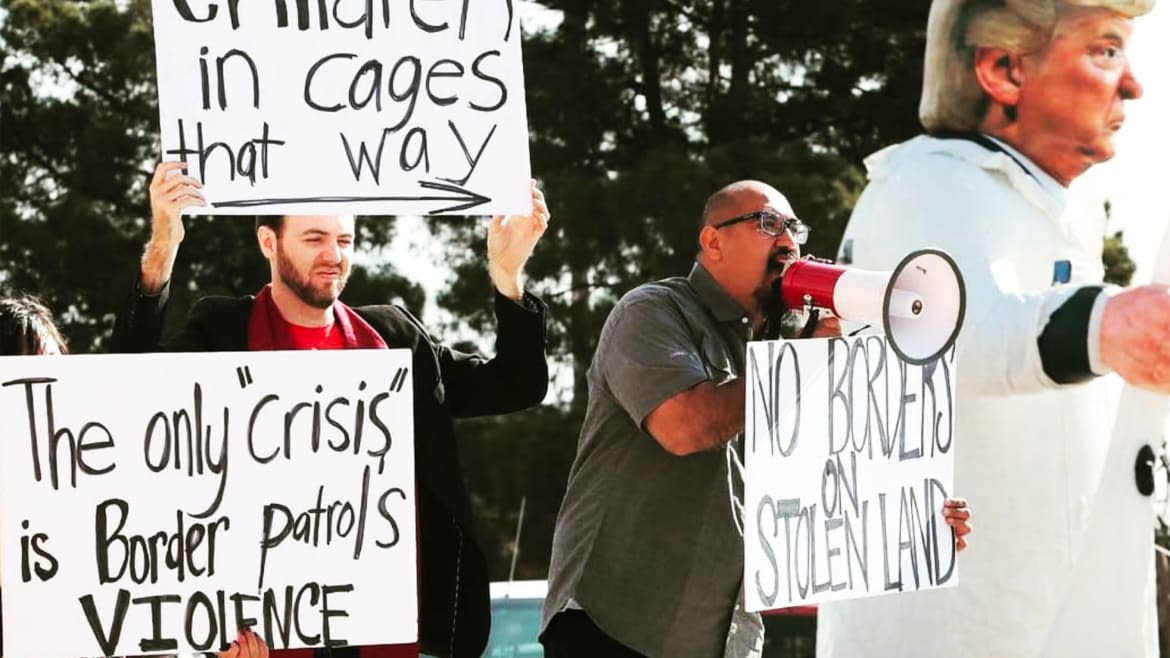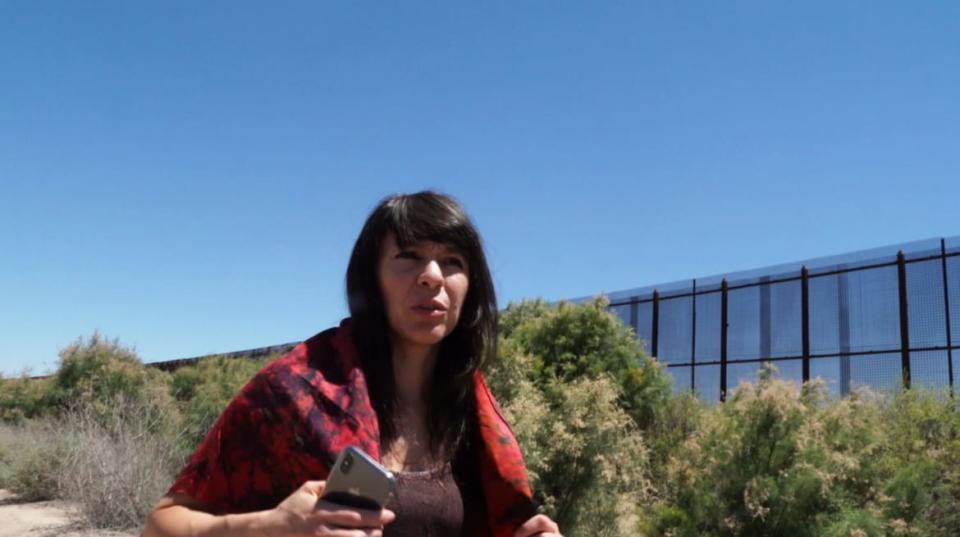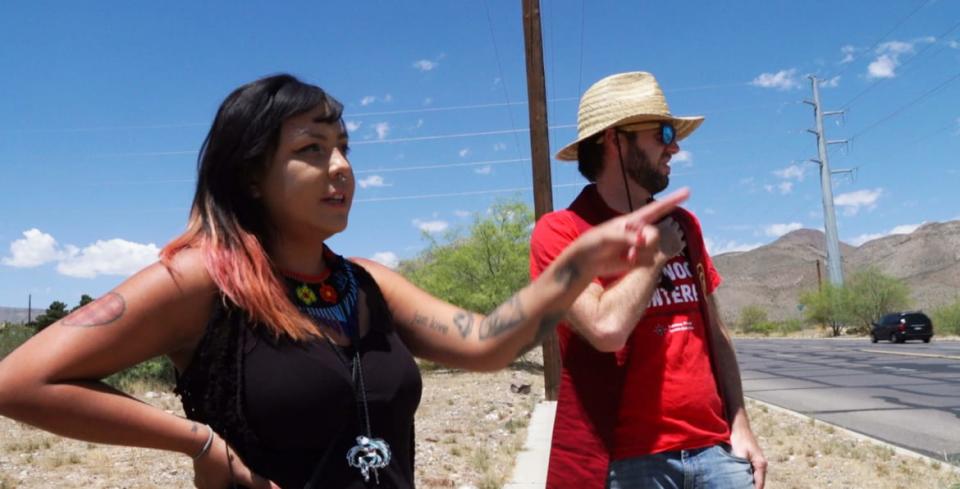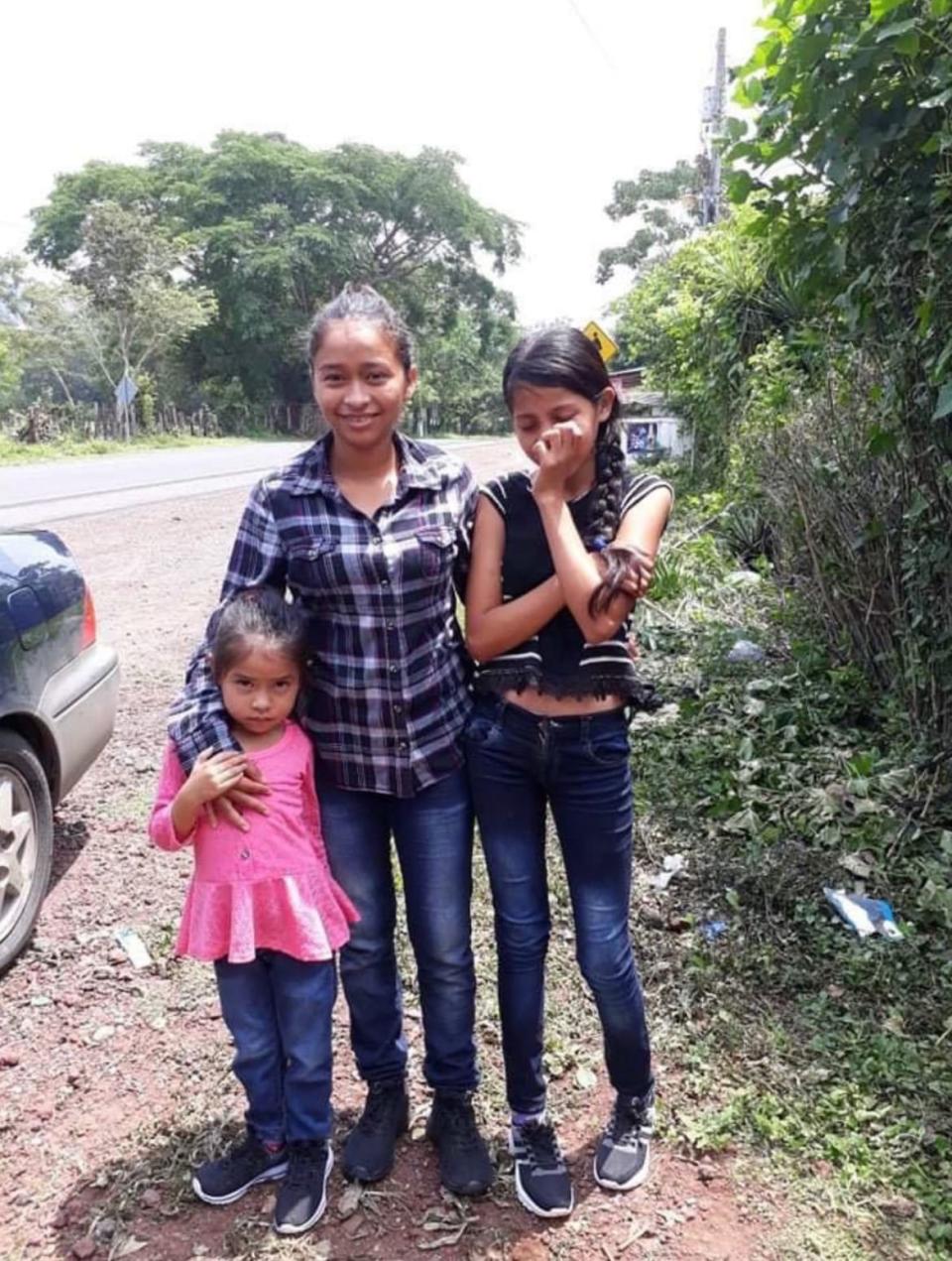Meet El Paso’s Punk Rock Border Angels

If you are looking for the epicenter of America’s current moral and psychic crisis, head for El Paso.
The divided border city is a clash of two distinctly American visions. One, a dream of diversity and multiculturalism—all-night fusion restaurants, Native American cafes with great cactus stew, and Tex-Mex skacore mosh pits that go all night. The other, a darker vision, that threatens it all, is a gentrifying monocultural nightmare masking a history of genocide and torture that erupts into white supremacist terrorism, xenophobia, and violence and which has been amped to a fever pitch under Donald Trump.
Throw in tens of thousands of asylum seekers from across the world seeking to make their home in the U.S.A. and you have the place where the battle for the soul of the American Dream is taking place.
El Paso is where diversity fights for a home against America’s own racist, psychotic demons, and asylum seekers fight for their vision of a better life.
Even as the city is reeling from the deadliest racist terrorist violence in its recent history, new threats of racist violence are a part of life for those fighting for justice and human rights.

In the midst of all of this, a small group of indigenous activists are trying to make a stand. Their message: let’s be human about this whole immigration thing please? They’ve formed an ad hoc consortium of punk-rock humanitarian folks, “Food Not Walls/Cosecha El Paso.” It’s a homegrown NGO that delivers supplies to migrants and tries to track down their separated children. It is doing God's work. Or, rather, let's say human work, because this is a fight for our humanity itself. Fighting the tide of hate and criminalization of immigrants, these folks are saying: we need to feed and clothe those in harm’s way.
“We are here to help the asylum seekers,” says Crystal Moran from Food Not Walls/Cosecha El Paso. “We have seen horrible conditions—overcrowding them in pens, no access to clean water, holding asylum seekers under the bridge basically out in the open where it was freezing cold, kids getting sick, with nothing but mylar blankets. It was horrible.”
As we ride through the streets in Moran's souped-up black Mustang, everywhere are the physical reminders of recent atrocities: here a huge football-field sized tent city where thousands of migrants were held in unsanitary conditions, a place where police brutalized and arrested protesters.
We pass by hidden guard posts under highway overpasses; places where migrants drowned; militarized CBP, DHS and ICE on street corners and in bars; and huge military installations ringing the city. And it seems like everywhere you look—the wall, the wall, the wall. As you ride the border highway, the wall dances along the Rio Grande, jumps over bridges and overpasses, it ripples along like a mirage that is always somehow right next to you, like a phantasm looking over your shoulder, a dark shadow that streaks across the center of your mind. A constant reminder that when you peer into Mexico, across the ravine into Juarez, that you can’t get there from here or vice versa.
Crystal and I drop off supplies to Annunciation House, a charitable organization operating out of a warehouse where migrants are trying to regroup after detention. The atmosphere is one of hushed secrecy. The threat of violence against those trying to help migrants is palpable, constant. Crystal is unpaid, and like her cohorts at this tiny NGO, she spends most of her free time trying to help the migrants. She sees her activism as part of her indigenous culture—she is Coahuilteco and practices Aztec dance. She reminds me, “These migration routes are thousands of years old, they exist far before any borders.”
We rush to a relative’s house for more supplies to deliver—food, clothes, diapers, feminine hygiene products—and the phone rings. Juan Ortiz is assisting our trip by phone from his hospital bed in Dallas. Juan, one of Food Not Walls/Cosecha El Paso’s founders, was viciously beaten in a confrontation with white supremacists at an El Paso restaurant in May.
It was his birthday. They shattered his fibula and tibula—class 4 complex fractures or breaks. He was stomped and kicked, resulting in his pectoralis major muscle being ripped off of his humerus bone. His shirt and face were imprinted with the pattern of the soles from the bottom of his aggressors' shoes.
“It seems like the world is descending on us in El Paso,” he says, telling me of how his hometown has become a favorite place for white supremacists and vigilantes to occupy, carrying out bizarro anti-immigrant missions. “A militia group came down and they were actually detaining people, pretending to be border patrol. There were so many groups in El Paso that were scared to speak up because there is a growing presence of right-wingers who are coming down. The militarization of our community isn’t just the uniformed military, it is the culture that they are bringing.”
“Ever since the Trump rally in February of 2019,” he adds, “we’ve seen a new kind of boldness, which is much more than armed guards. They are in our home trying to change our politics.”
And every few days, it seems, there’s another incident. The horrific terrorist attack on Aug. 3 that killed 24 people at an El Paso Walmart was not only an outright assault against asylum seekers and people of color, but the murderous manifestation of anti-immigrant rhetoric that has brought white supremacists flocking to El Paso. Fueled by the xenophobia of the Trump administration and its boosters, brutal racist attacks continually threaten those working for human rights in the region. “This shooter was the foot solider, but his commander in chief is Trump and their constitution is white supremacy,” added Ortiz.
On the night of Aug. 7, a white supremacist Trump supporter wearing blue latex gloves and brandishing a knife was arrested outside the group’s small community space. Police recovered a loaded gun and live ammunition. This happened just as Trump departed El Paso and it followed a pattern of local organizers being targeted and increased violence and hate crimes. “This terrified the community. Three women ran by me panicked, saying ‘he is about to start shooting us. He is about to start shooting us,’” says Christy Velez.
An aid worker who requested anonymity because of consistent threats of violence puts it a different way: “They are training here for the race wars of the future.” As we speed by Fort Bliss, one of the largest military bases in the U.S., she reminds me that the policy of family separation and the relocation of children, which has caused such outrage and shock of late, has always been with us. It was a staple of both slavery and the Native American genocide. It has always been a part of American policy towards black and brown people. “We don’t need to look to Nazi Germany as an example of genocide,” she says, “it has always been right here. It starts here.”
All the activists here refuse to use any of the language of the oppressors when referring to the thousands migrating here—they are not illegals, nor refugees. They are simply “asylum seekers.”
But if this is an asylum, Christy Velez is keeping me sane. She makes frequent trips across the border to Juarez. She often supports migrants with food, clothing and other aid straight out of her own pocket. She and her group of punk rock border angels have taken it upon themselves to do what the federal government has failed to do: provide a human face for the United States of America. Velez has ties to both sides of the border—a substantial part of her family was split by the border wall, many of her cousins live on the Mexican side of the divided city.

She has offered to escort me to Juarez, Mexico, to interview an asylum seeker who is being helped by her organization. Not many asylum seekers want to speak to the press, let alone be on camera, so I jump at the chance.
When we cross the bridge into Juarez, we immediately see bus stops and lampposts plastered with pink crosses and flyers showing missing and murdered women. You cannot walk three blocks in Juarez without seeing a shrine or a symbol or a protest or a missing person’s flyer with a face of some young beautiful, innocent, wide-eyed girl who’s been abducted or murdered.
Even though half of her family lives here, when I ask Velez if she is afraid of being abducted herself when she comes on her humanitarian missions to Juarez she says, “Of course. Over 1,500 women have been disappeared.” But brushing aside fear for her own safety to do her work is clearly a part of her daily life and mission. Velez and other Food Not Walls activists have been delivering supplies to migrants on both sides of the border for years now, sometimes by gathering donations for local aid organizations like Annunciation House, other times by staging civil disobedience actions aimed at calling attention to the brutality of the border camps.
After a breakneck ride through the Juarez streets with Velez’s cousins, we arrive at the parking lot of a small motel. We meet our subject there. We have only a few moments to talk.
Five-foot nothing, skinny and wearing the same clothes for weeks, our subject, who shall remain nameless, talks to me out of the sheer desire to try to locate her sisters and out of the will to encourage other migrants and asylum seekers not to back down. It is a remarkable display of poise and, well, to put it mildly, gumption.
In Colombia, she says, she faced extortion. She couldn’t pay the local gang who threatened her life, and her two little sisters were so afraid of the circumstances they could not go to school. She decided to leave to seek help from her aunt who lives in San Antonio.
In her words, she left “to find a better life, to pursue her dreams.”
Immediately upon declaring asylum in El Paso, her two sisters, ages 12 and 4, who had made the three-week trek to El Paso with her in search of a better more peaceful life were taken from her. Separated instantly without a trace. At the time of this interview, she hadn’t seen them in more than two weeks.
When I ask her if CBP or ICE or any border agencies involved have given her any way to find where her young vulnerable sisters are, she says simply, “No.”
No tracking number, no receipt, no information about their location or whereabouts, no contact number or agent to call, no nothing. Just GONE. Disappeared. Somewhere in the system. OR somewhere out of it. Two young girls, aged 12 and 4, simply vanished. Six weeks later, there is still no trace, no information.

Now, the only hope she has of contacting them or finding her way to them is through the charity of Food Not Walls/Cosecha El Paso and other agencies helping her that are paying her guesthouse for the time being.
Can you imagine? You travel for weeks with your two young sisters and immediately they're taken away from you and they are never mentioned again. No one can tell you where they are. No one can tell you if they’re OK. No one can tell you if they're getting proper medical support or food or nutrition. No one can tell you what is happening to them. They could be in El Paso or they could be in New York or they could be in Missouri. They could be in one of the other hundreds of detainee facilities in America—loaded on a plane and shipped somewhere else, put in a foster family not their own. Nobody knows.
In spite of this incredible hardship, she remains calm and poised in the interview. She is undeterred by the hardships she has endured. Her last comment simply was to other migrants:
“Don’t give up if they treat you badly here. Persist and fight through. Fight for your dreams. Fight for your dreams.”
Isn’t that fighting spirit what is supposed to make this country great? Isn’t that where the American dream is born?
Tell me that this person is a criminal. Listen to what she says and tell me that this person wouldn’t be a benefit to any community. Then look at Donald Trump and his supporter’s racist rantings, and brutal beatings and terrorist massacres, and tell me who’s more hateful.
Tell me who’s more dangerous.
Tell me who you’d rather run into at Walmart.
Tell me who you’d rather have as a neighbor.
Josh Fox is an Oscar-nominated, Emmy-winning filmmaker, journalist and author. He will tour with his latest film and book, THE TRUTH HAS CHANGED, about immigration, climate change, and journalism, this fall and winter.
Get our top stories in your inbox every day. Sign up now!
Daily Beast Membership: Beast Inside goes deeper on the stories that matter to you. Learn more.

